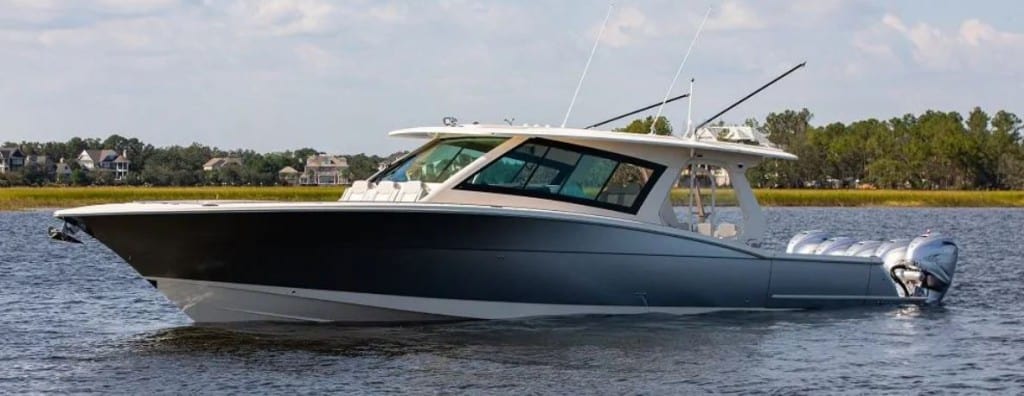
There’s a lot to consider when buying a boat. Perhaps the most important question is where and how you will use your vessel. Will you boat on rivers or bays? Maybe you live near lakes or the open ocean. Whatever the case, this is an essential topic, as you need to choose between a saltwater and a freshwater boat. Understanding the differences between these two crafts will help you make the right selection.
If you’d like to purchase a new craft, design one to fit your exact needs with our Build Your Scout tool. You can add features for fishing, watersports, entertainment, and more to best enjoy your boating experience!
Corrosion Resistance
Saltwater boats are specifically designed for dealing with corrosion, and they have a lot of features that help the vessel resist rust. This is important, as saltwater causes corrosion faster than freshwater. Closed cooling systems, for example, are used to cool the motor of a saltwater boat. These are different than the open systems that pull water into the motor, which are used on freshwater boats. If you were to pull saltwater into the motor, corrosion and salt buildup would occur.
This does not mean that saltwater boats are corrosion-proof—they still require regular cleaning and care, but they are better suited to withstand the harshness of saltwater.
Hull Design
There’s also a difference in hull design for freshwater and saltwater boats. It may be subtle, but an experienced eye can usually spot a saltwater boat with a quick glance. In essence, saltwater boats have a design that’s better for rougher and often deeper water.
On saltwater, the hull takes most of the force from choppy waves. Therefore, they are designed to withstand more abuse than most freshwater boats. In many cases, saltwater boats have a deep V that allows them to cut through the water quickly. This V adds ride stability, but it’s not good for most freshwater areas, such as shallow rivers and lakes.
Freshwater is often not as deep as saltwater, so freshwater boats don’t usually have or require the deep V hull. This ensures they don’t bottom out in shallow areas.
Saltwater Boats Often Have a Mercathode System
One of the most important differences between a saltwater boat and a freshwater boat is the mercathode system. This is a cathodic protection system that runs a small electrical current through the engine, including the engine block and outdrive components. This electrical current, while small, helps to slow galvanic corrosion on metal parts that are submerged in the water.
This technological innovation has saved countless saltwater motors from rapid corrosion, but it’s not required on freshwater boats, as the chance for corrosion is less severe in lakes and rivers.
Find the Perfect Boat for Saltwater or Freshwater
We hope you now know the difference between saltwater and freshwater boats. No matter which option you choose, explore the lineup available from Scout Boats to find a top-quality vessel that you’ll enjoy for years to come. Then, use our Build Your Scout tool to add features for fishing, watersports, entertainment, and more!




